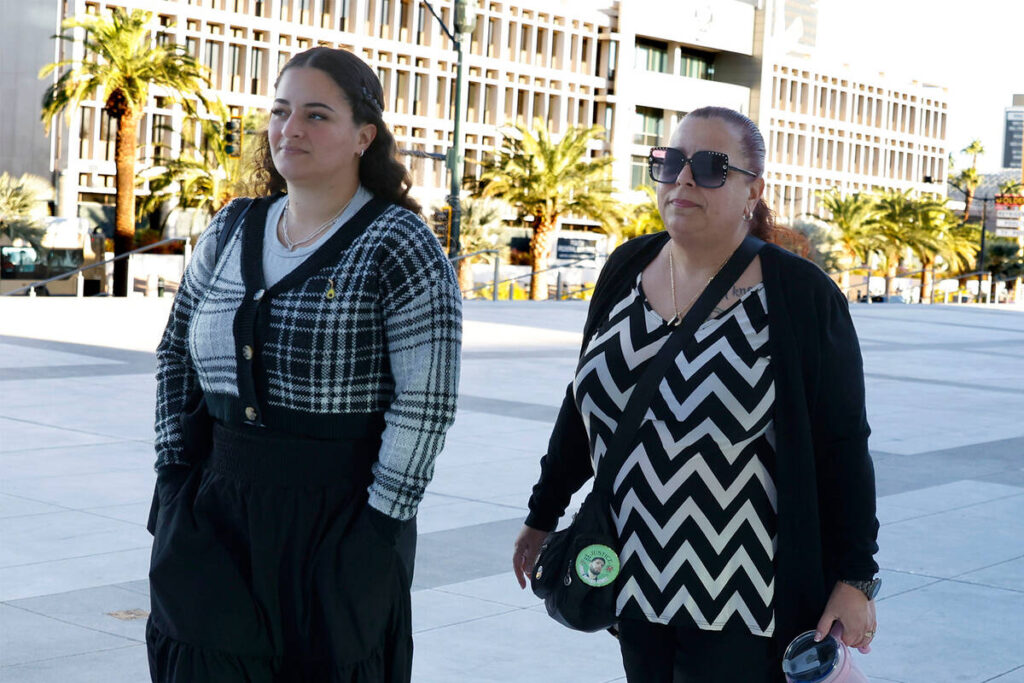‘A hole inside you’: Parents of armed protester killed by police speak at trial
Summary
A federal civil trial continues over the 2020 shooting death of 25-year-old Black Lives Matter protester Jorge Gomez in downtown Las Vegas. Gomez’s mother and father testified about the emotional toll of his death, describing him as a close, loving son who enjoyed baseball and family life. The lawsuit names multiple Metropolitan Police Department officers — including the four who fired shots (Ryan Fryman, Dan Emerton, Andrew Locher and Vernon Ferguson) and Detective John Squeo, who fired a beanbag round — and the department itself. Clark County prosecutors previously declined to criminally charge the officers.
During testimony, officers said Gomez pointed a rifle at them; the family’s attorneys dispute that. Witness accounts described chaotic moments: officers issued a dispersal order, an officer fired a beanbag shotgun, Gomez ran and officers then fired lethal rounds. Medical experts called by each side gave sharply different views on Gomez’s pain and consciousness after he was hit.
Key Points
- A civil trial is wrapping up over Jorge Gomez’s 2020 shooting near the federal courthouse in Las Vegas.
- Gomez’s parents testified about the personal and emotional impact of his death, describing a deep, lasting void.
- Four officers who fired shots are defendants in the civil suit; they were not criminally charged by local prosecutors.
- Detective John Squeo is named for firing a beanbag round before the fatal shooting.
- Police witnesses say Gomez pointed a rifle at officers; the family disputes that claim.
- Defense and plaintiff medical experts contradicted each other about the pain and consciousness Gomez experienced after being shot.
- Testimony included details about Gomez’s background: he lived in Oregon and Las Vegas, attended college, and had been given a firearm by his father.
Context and relevance
This case sits at the intersection of police use-of-force scrutiny and ongoing public concern about accountability following protests in 2020. Locally, it revisits decisions by Clark County prosecutors not to pursue criminal charges; nationally, it echoes debates about how law enforcement confronts armed individuals at demonstrations and how civil courts address alleged misconduct. The testimony from family members humanises the victim and underlines why families often pursue civil remedies when prosecutors decline charges.
Why should I read this?
Because it’s not just legal jargon — it’s about a family trying to make sense of a preventable death and whether officers followed the rules. If you care about police accountability, protest policing or how civil trials fill gaps left by criminal prosecutions, this gives you the key facts without the courtroom waffle. Plus, the parents’ testimony is powerful and worth hearing.
